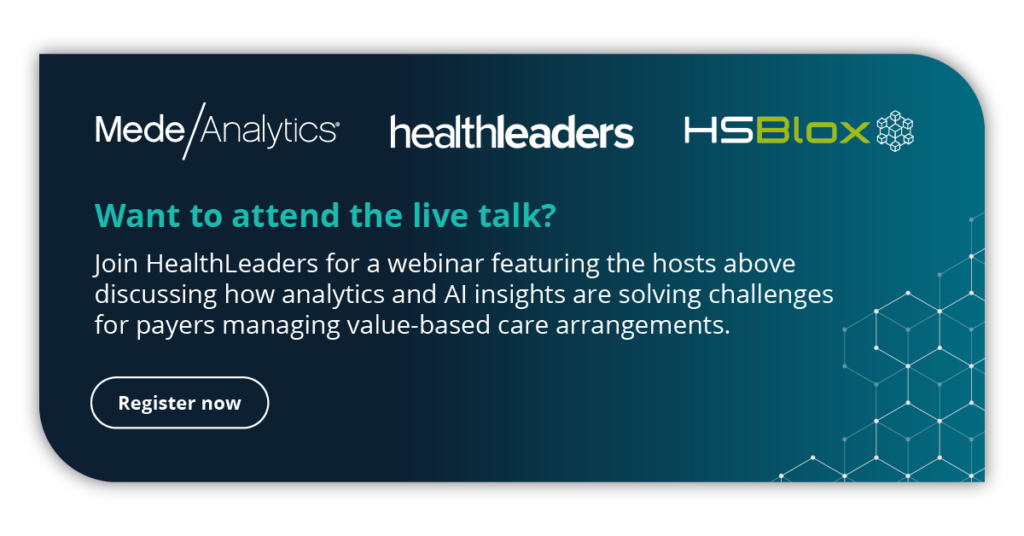At the top of the year, Rahul Sharma, Chief Executive Officer, and Lynn Carroll, Chief Operating Officer and Cofounder of HSBlox sat down with our own David Wolf and Andy De to talk all things contract administration and management. What is it? Why is it important? And how can payer organizations succeed at it? Keep reading for a recap of the conversation, and join us for our upcoming webinar with HealthLeaders.

1 – What is contract administration and management, specifically in a value-based care context?
Managing and administering contracts with providers and ACOs is one of the many parts that payer organizations play in value-based care arrangements. Broadly, it is the framework on which a value-driven healthcare ecosystem can be built. More specifically, it is reliable support and end-to-end administration for multiple payment models that emphasize outcomes over volume.
2 – Why is robust contract management a must-have?
There are several key differences in the operational requirements to sustain a fee-based program versus a value-based program. Two that stand out are (a) contract modeling and (b) financial payment systems.
Designing a contract that engages and accurately incentivizes a potential provider partner can be a challenge. Contract modeling enables payers to play out different versions of contracts, assess their impact and make data-informed decisions.
To build and keep strong provider partnerships, transparency around payments is also critical. Fee-for-service has not required the one-to-many relationships that value-based programs necessitate, so trust has to exist between stakeholders. Create a financial payment system that prioritizes transparency for value-based arrangements.
3 – What is the biggest barrier to successful contract management?
Successful value-based care contracts are predicated on great data, but it can be difficult to establish a data ingestion process that is as flexible as it is durable. Along with taking in standard healthcare transactions, you need to be able to ingest HL7 FHIR, CCLF, CCDA, and customized transactions—then digitize and structure that information into longitudinal health records so you can query and analyze it. This process of absorbing and assessing data is the basis for modeling contracts that tick the boxes for both providers and payers. It is a great concept and a huge undertaking; it requires a strong engine to power interoperability and collaboration at this scale.
4 – What is the make-or-break element of value-based care administration?
Picking up at the end of the last answer: value-based care has to grow out of collaboration. You have to establish a sound methodological strategy and solid operational system, both of which must prioritize smooth teamwork between various organizations (even those who may have previously struggled to align). It’s essential to patients that payers, providers, and other primary forces in the care journey are uniting over a common goal of enabling healthier populations.
Attend the live HealthLeaders talk for more, including:
- The four steps to a well-executed contract process—and how to optimize each one
- Tactics for establishing shared parameters and program expectations that set providers and payers up for success in a value-based healthcare system
- How to benchmark provider and ACO performance using contract adherence and KPIs
For information on the exclusive partnership between HSBlox and MedeAnalytics, read the press release or ask us about it.
Get our take on industry trends
Healthcare Organizations Recognize Importance of AI for Reporting
Healthcare providers continue to recognize the value of using AI in reporting operations throughout the organization. AI has many strengths when applied to the healthcare industry:
Read on...Why It’s Time for Healthcare to Move Toward AI Reporting
Business intelligence (BI) was a dramatic and significant step forward in healthcare industry reporting and a natural transition to artificial intelligence (AI) enabled real-time insights.
Read on...Why Healthcare Should “Double-Down” on Exploring AI-powered BI for Reporting
Many areas in healthcare rely not only on the collection of data but, importantly, the ability to decipher and act upon it. In that intersection, reporting was born.
Read on...Why Health Plans and Employers Need Stop Loss Reporting
Due to rising healthcare costs and the Affordable Care Act removing the ban on capitated benefits coverage, numerous employers with self-insured health plans often purchase stop loss coverage. This coverage is not medical insurance; but rather, it’s a financial and risk management tool that protects the employer from excessive claims.
Read on...


